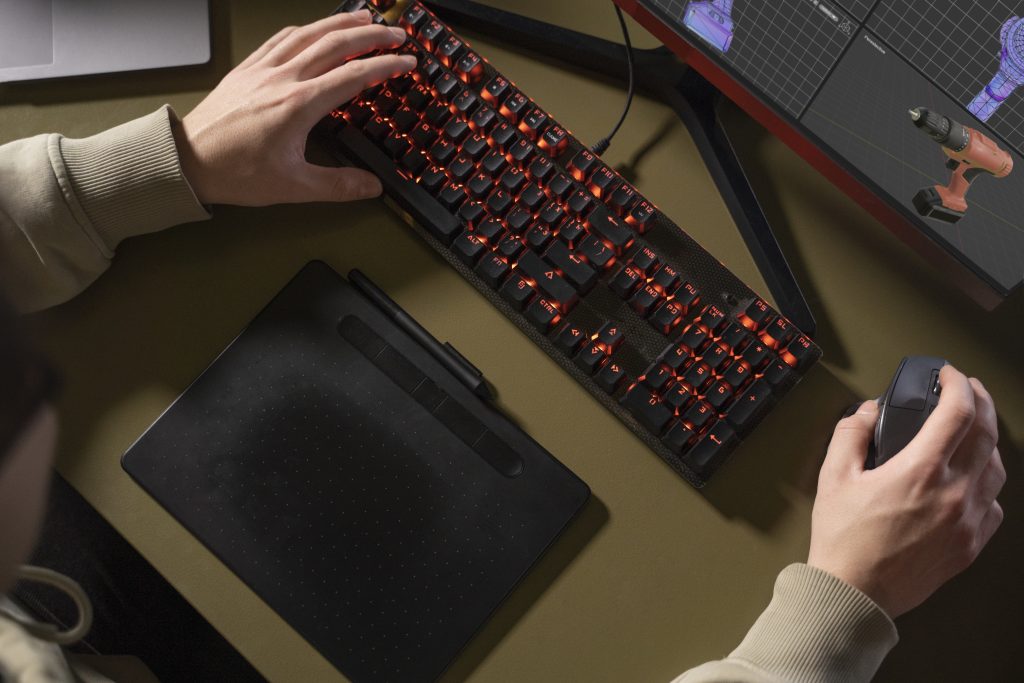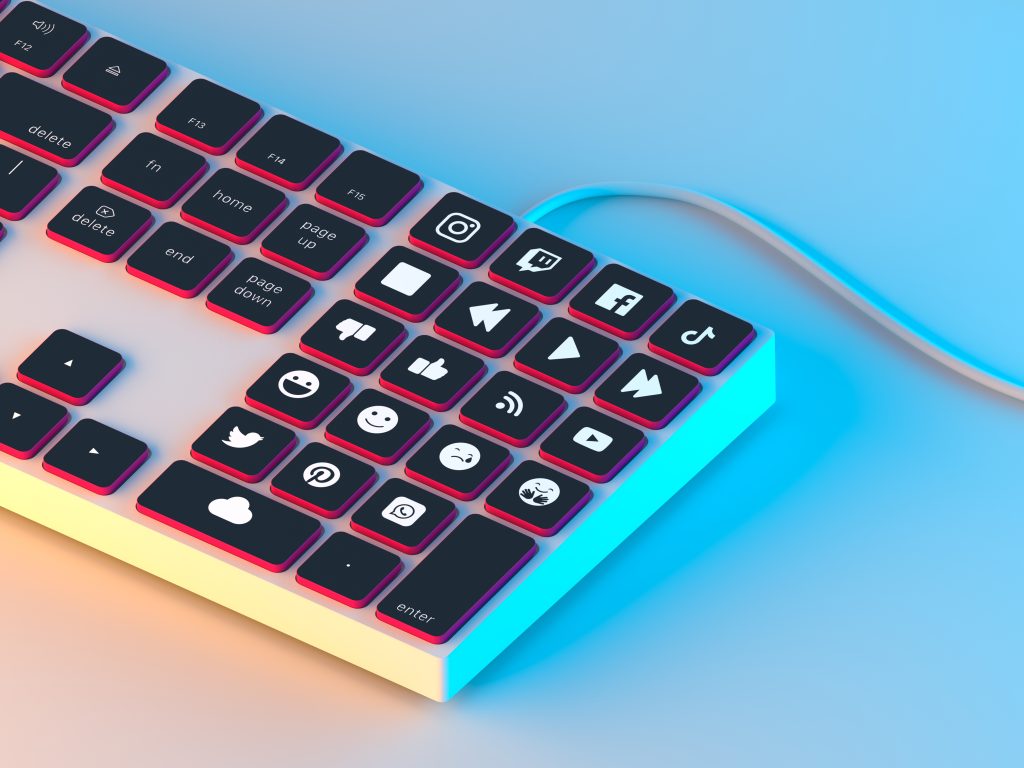Table of Contents
Choosing the right ergonomic keyboard can significantly impact comfort, productivity, and long-term health. Two of the most common types are mechanical and membrane keyboards, each with unique features that affect typing feel, durability, and usability. Understanding their differences can help you decide which option best fits your needs.
What is a Mechanical Ergonomic Keyboard?

A mechanical ergonomic keyboard uses individual mechanical switches for each key. When you press a key, the switch beneath it activates, giving you tactile and auditory feedback. These keyboards are known for precision, responsiveness, and long-lasting durability.
Key characteristics:
- Distinct tactile or clicky feedback
- Higher durability, often lasting tens of millions of keystrokes
- Customizable switches and keycaps
- Louder typing sound compared to membrane models
What is a Membrane Ergonomic Keyboard?

A membrane ergonomic keyboard uses a pressure pad system with layers of flexible materials beneath the keys. When pressed, the top layer pushes down on a conductive layer, registering the keystroke.
Key characteristics:
- Softer, quieter keypresses
- Lower cost compared to mechanical keyboards
- Slimmer and more lightweight design
- Less durability, with a shorter lifespan for heavy use
How Do Mechanical and Membrane Ergonomic Keyboards Differ?
Typing Experience
Mechanical keyboards provide a more defined tactile feel when pressing each key, often with a click or bump that signals successful input. This makes typing more precise and satisfying for many users.
Membrane keyboards, on the other hand, deliver a softer and quieter typing experience. While this can be more comfortable for some, it lacks the responsiveness and feedback that mechanical options provide.
Durability
In terms of longevity, mechanical keyboards have a clear advantage. Their individual switches are built to withstand tens of millions of keystrokes, making them highly durable even under constant use.
Membrane keyboards, while functional, tend to degrade more quickly. The pressure pads wear out over time, resulting in less reliable keystroke registration and the need for replacement sooner.
Noise Level
Noise is another key difference between these two types. Mechanical keyboards are generally louder, especially those with clicky switches that produce an audible sound with each press. While some users enjoy this feedback, it can be disruptive in shared or quiet environments.
Membrane keyboards, by contrast, are much quieter, making them more suitable for offices, libraries, or late-night work sessions at home.
Customization
Mechanical keyboards offer a wide range of customization options. Users can choose from different switch types, each with unique feels and sounds, as well as swap out keycaps and adjust lighting effects. This makes them appealing to those who want a personalized typing or gaming setup.
Membrane keyboards typically lack this level of customization, as their design is simpler and less modular.
Price Range
Price is often a deciding factor for many buyers. Mechanical keyboards are usually more expensive because of the quality and complexity of their switches. They are seen as a long-term investment due to their durability.
Membrane keyboards are more budget-friendly and widely available, which makes them attractive to casual users or those who need a simple plug-and-play solution.
Are Mechanical Keyboards Better for Ergonomics?
Mechanical ergonomic keyboards are often favored by professionals who type for long hours. The tactile feedback can reduce the effort needed to press keys, which may lower strain. However, their height and weight can be less comfortable for users who prefer a softer typing experience.
Are Membrane Keyboards Better for Ergonomics?
Membrane ergonomic keyboards tend to be lighter and quieter, which can be beneficial in shared offices or home environments. Their cushioned feel may suit those who prefer minimal resistance while typing. However, the lack of tactile feedback can make long sessions less precise.
Which Keyboard is Better for Gaming?
Gamers often prefer mechanical keyboards because of their faster response times, durability, and customizable switches. Membrane keyboards can still be used for gaming, but may not provide the same level of accuracy and long-term reliability.
Which Keyboard is Better for Office Use?
For office workers in open spaces, membrane keyboards may be the better choice due to their quiet operation. Mechanical keyboards, while efficient and precise, can be distracting in shared environments unless fitted with quieter switches.
Factors to Consider Before Choosing

When deciding between the two, ask yourself:
- Do I prioritize durability and responsiveness, or silence and affordability?
- Will I be gaming, coding, or primarily typing documents?
- Do I want a customizable setup, or a straightforward plug-and-play keyboard?
Frequently Asked Questions
Are mechanical keyboards worth the higher price?
Yes, if you value long-term durability, faster response, and a satisfying typing experience.
Do membrane keyboards cause more fatigue?
Not necessarily. Their softer feel can be easier for casual use, but the lack of feedback may strain some users during extended typing.
Can I use mechanical keyboards quietly?
Yes, with quieter switch types like linear or silent switches, and by adding dampening rings.
Which keyboard lasts longer?
Mechanical keyboards generally outlast membrane ones, making them a better long-term investment.
